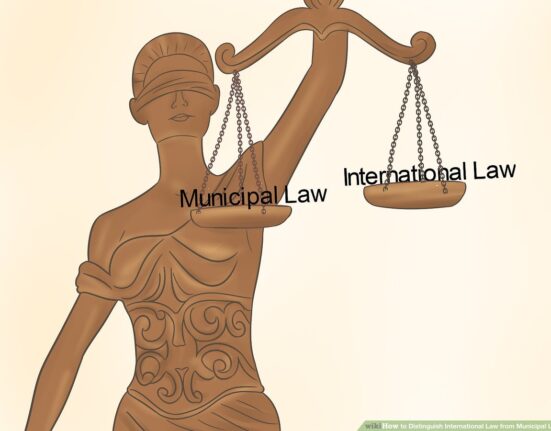Introduction
Some questions that are relevant to the study of international law include who can create international law? Who has rights, duties, and powers under international law? (or international legal personality); and who is regulated (governed), directly or indirectly, by international law? The term “subjects of international law” refer to entities endowed with legal personality, capable of exercising certain rights and duties on their own account under the international legal system.
According to Starke, the term “subject of international law” means; an incumbent of rights and duties under international law; The holder of procedural privileges of prosecuting a claim before an international tribunal; and The possessor of interests for which provision is made by international law
Oppenheim says that an international person is one who possesses legal personality in international law meaning one who is subject to international law so as to enjoy rights, duties, or powers established in international law. It also gives the capacity to act on the international plane either directly or indirectly through the state.
Theories regarding subjects of International Law
1. Realist Theory (States alone are subjects of International Law)
According to the orthodox positivist doctrine, states are the only subjects of international law. According to Prof. Oppenheim, “the law of nations is primarily a law of international conduct of states and not of their citizens”. If individuals have any right then it can be claimed only through the states. The Jurists of this school believe that the states are the subjects of international law, while individuals are the objects of international law.
Criticism of Realist Theory
It is silent on the rights of the individuals and the international offenses for which individuals may be punished. In Reparation for injuries suffered in the services of the UN case, the ICJ held “that the UN has the capacity to bring an international claim against the State for obtaining reparation when an agent of UN suffers injury.”
- This theory was supported by Percy Corbett.
- As per his view, International Law regulates the conduct of States and only States are subjects of International Law.
- He regards individuals as objects of International Law and not its subjects.
- Criticism: This theory was criticised by George Schwarzenberger, who opined that it is not correct to assume individuals as merely the objects of International Law, as they are the basis of society. It takes an extreme view.
2. Fictional Theory (Individuals alone are subjects of International Law)
In this theory, Jurists believe that Individuals are the only subjects of international law as states do not have the soul or capacity to form an autonomous will. Prof. Kelson opined that the laws ultimately apply to the individuals and are for the individuals alone. As per this theory, the welfare of an individual is the ultimate goal of international law.
Criticism of Fictional Theory
The primary concern of International law is the rights and duties of the states. Individuals possess many rights under international law but their capacity to enforce these rights is limited. In most cases, a state files the claims for the rights of the citizens. In the Mavrommatis Palestine Concession case (1934), the PCIJ observed that “It is an elementary principle of international law that a state is entitled to protect its subjects”.
- This theory was supported by John Westlake and Hans Kelsen.
- Westlake opined that “the rights and duties of States are only the rights and duties of men who compose them.”
- Kelsen stated that every law, whether municipal or international, is ultimately made for the individuals.
- Criticism: As per Judge Philip Jessup, this is another extreme view. The procedural capacity of individuals is very restricted under Int Law. For ex: individuals cannot approach the ICJ directly.
3. Functional Theory
The jurists with a moderate view criticize both of the above theories. These Jurists believe that States, Individuals and certain non-state entities are subjects of international law. Now, Individuals got right even against the states. An example of this is the European Convention on Human Rights in 1950. Under International Covenants on Human rights 1966, it is held that individuals can claim rights directly under international law. In some cases, Non-state actors like Colonies and Protectorate states are treated as subjects of international law.
- •As per this theory, States are the primary subjects of International Law.
- •However, individuals and non State entities also have some rights and duties under International Law.
- •States possess ‘original personality,’ while non State entities and individuals possess ‘derivate personality’ under International Law.
Place of Individuals in International Law
Several conventions and treaties have recognized some basic human rights of individuals under International Law. For-ex: UDHR (1948), ICCPR (1966), ICESCR (1966).
2. Geneva Conventions of 1949 have conferred some rights on the prisoners of war and civilians (PoW).
3. At the Nuremberg and Tokyo trials, individual criminal responsibility was fixed under International Law.
4. Pirates are treated as enemies of mankind under International Law. So every State is entitled to apprehend and punish them.
5. Espionage is a crime under International Law and spies can be apprehended and punished.
Conclusion
All in all, we can say that there are mainly 2 subjects of International law i.e. States and Individuals. Every other subject of international law revolves around these two.
Also Read: Best book for Evidence Act for judiciary
![]()







Leave feedback about this